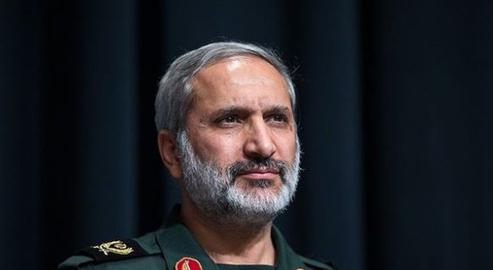Crack teams of Basij members are being formed across Tehran to police the city’s streets. According to Mohammad Yazdi, commander of the Tehran Revolutionary Guard Corps, strike teams are being tasked with combating “thugs” in the various neighbourhoods of the capital. What does this mean – and what will the consequences be?
***
After three years in the long grass, the Revolutionary Guards’ old neighbourhood-based security plan has once again been thrust forward toward full implementation.
The plan aims to suppress local dissent in neighbourhoods before it has a chance to bloom into full city-center demonstrations. Back in 2017, Brigadier General Gholamhossein Gheibparvar, then-head of the paramilitary Basij Organization, first announced the plan together with the launch of foot patrols to neutralize “thugs”.
Now Tehran’s Revolutionary Guard has announced that full strike teams, utilizing all the resources of the Basij, will be formed up to “maintain neighborhood security”, “confront the thugs” and fight crimes such as robbery and pickpocketing.
Who are the Real Targets?
Based on the Iranian shadow-state’s policing record to date, the real criminals and thugs on Iran’s streets should have little to fear from these new squads. In all likelihood, it is political activists and ordinary civilian protesters that will be targeted.
Senior Iranian military and law enforcement commanders have admitted that similar security measures in the past were deployed for this purpose. In 2015, then-police commander Esmail Ahmadi Moghadam told Ramz-e Obour magazine that in the 12 months prior to the 2009 presidential election, police had been anticipating protests and held exercises on the pretext of dealing with "thugs and mobs".
One of the reformist politicians who caught onto this at the time was Abdolah Ramezanzadeh, spokesperson for President Mohammad Khatami. In private messages about the intentions of the police, Moghadam revealed, he had written: “They want to scare us more than criminals and thugs."
Moghadam also claimed that then-president Mahmoud Ahmadinejad objected to police being mobilized in this manner. "Why,” he reportedly asked, “are you creating a security atmosphere?" To which the police chief said he replied: "It is necessary. Be assured, this election will be a challenging one."
Apart from their political function, these strike teams may also have a social dimension. They could be used to control “contentious” behaviour such as parties and alcohol sales in urban areas.
Unleashing Violence on Peaceful Gatherings
Even if part of the function of these new squads is, indeed, to combat real criminality on the streets of Tehran, there is every chance that they will later be weaponized against innocent civilians. So too might the criminals themselves.
The late Revolutionary Guards commander and former deputy commander of the Basij, Hossein Hamedani, became known for his suppression of the 2009 demonstrations. In the aftermath, he was infamously quoted as saying that violent criminals had been employed by the state to beat up protesters.
“We had identified and monitored 5,000 violent criminals,” he said, “and firstly, ordered all of them to stay at home. But later I thought: why not employ these thugs?
“So I organized them in three regiments to engage with the protesters on our behalf. They proved me right ... if we want to train Mujahids, we need these types of violent people who are not afraid of a few drops of blood.”
Prior to the confession, Alireza Beheshti, an adviser to opposition politician Mir Hossein Mousavi, had already used an interview with Parliament News website warned about the presence of thugs attacking protesters in broad daylight.
What Role do the Patrols Have?
In November 2017, the head of the Basij announced that the newly-launched “patrols to combat thugs” would be working alongside local police and other security apparatus, as a replacement to static Basij checkpoints.
“In coordination with the judiciary and law enforcement forces,” he said, “Basij patrols and inspection posts will be dismantled and replaced by neighborhood-based patrols."
The announcement did not go uncontested. Interior Ministry spokesman Salman Samani retorted that “the Greater Tehran police force has not asked for help or participation in any fight against this issue."
At the time these plans were laid out, scattered protests over financial corruption and mounting unemployment were beginning to take place across Iran. The initial plans were implemented in January 2018, with Gholamhossein Gheibparvar announcing a scheme to establish “Headquarters for the Cultural and Social Transformation of Neighborhoods" at 1,000 locations in the country.
In December 2018, Mohammad Reza Rajabi, deputy chief of operations of the Fajr Revolutionary Guard Corps in Fars province, confirmed the "Basij neighborhood-based patrol plan" was being implemented locally. According to the plan, he said, each base would train a total of 21 patrol teams who would work in groups of three to five, both in vehicles and on foot.
These satellite institutions have been suppressing peaceful demonstration in Iran for the past three years. And amid a new, savage crackdown on political dissent, the IRGC is now moving forward with its old plans in a bid to stifle renewed public anger.
visit the accountability section
In this section of Iran Wire, you can contact the officials and launch your campaign for various problems



























comments